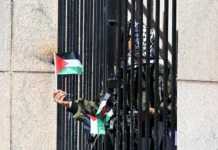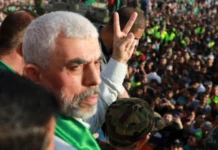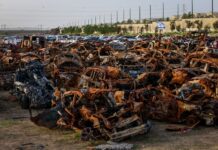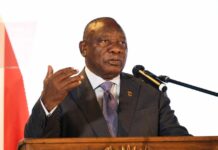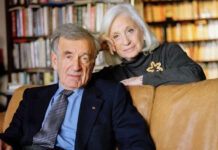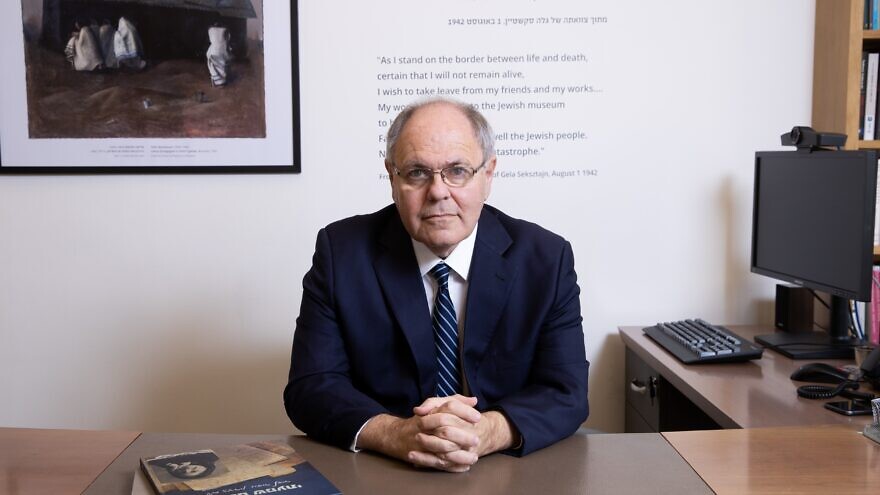Argentina agreed to share archival records about Jews who fled the Holocaust to the country this week in a new agreement signed between Yad Vashem‒The World Holocaust Remembrance Center and the Archivo General de la Nación (General Archive of the Nation) in Buenos Aires.
In addition, the countries agreed to increase Holocaust-education programs in the Latin American country.
“Holocaust remembrance, education and research are the keys to fighting intolerance, hatred and anti-Semitism,” said Yad Vashem chairman Dani Dayan, who signed the agreements on behalf of Israel. “Argentina took an additional step in the right direction to bringing meaningful and historically accurate knowledge about the Holocaust to its youth and future generations, as well as to allow for the expansion of our repositories of documentation of the events of this dark chapter of our not-so-distant past.”
He added that “with the opening of Argentinian National Archives, Yad Vashem will be able to delve deeper into the multifaceted elements—and meanings—of the Holocaust.”
The agreement was signed in the presence of Argentinian Interior Minister Eduardo de Pedro.
Today, the museum houses more than 222 million pages of Holocaust-related documentation, which over the years has been made available to researchers and the public at its Jerusalem campus and online.
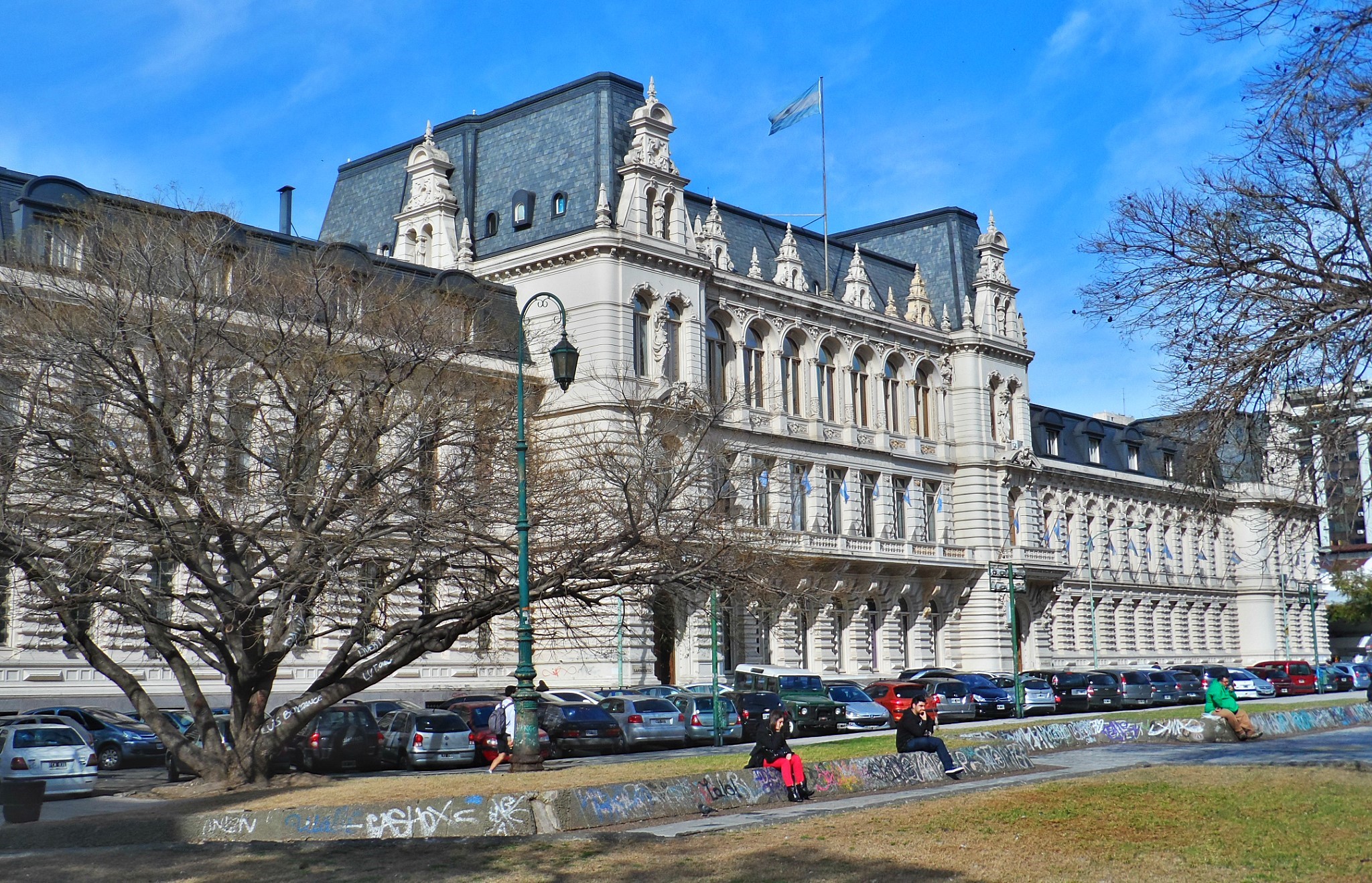
‘Holocaust is a puzzle’
According to the cooperation agreement, which JNS reviewed, the Argentinian General Archive will provide access for Yad Vashem representatives to the research tools and archival materials, as well as allow full-text copying of related documents. Yad Vashem may place digital copies of the reproduced documents in its own archive and can also open them up to the public for personal, educational or research purposes.
“It is our unwavering mission at Yad Vashem to gather all possible information relating to the Holocaust,” Dayan said after signing the agreement. “The archival documentation we collect is the basis for our multidisciplinary activities and enhances Yad Vashem’s mission to connect the pieces of the puzzle of the Holocaust in order to transmit its messages for all humanity.”
Yad Vashem Archives director Masha Pollack Rosenberg told JNS that the keys to uncovering the history of the Holocaust are hidden within archives scattered around the world.
“The Holocaust is one giant puzzle consisting of pieces of various sizes and significance,” she said. “Each individual, community and society have their own stories to tell and pictures to paint.
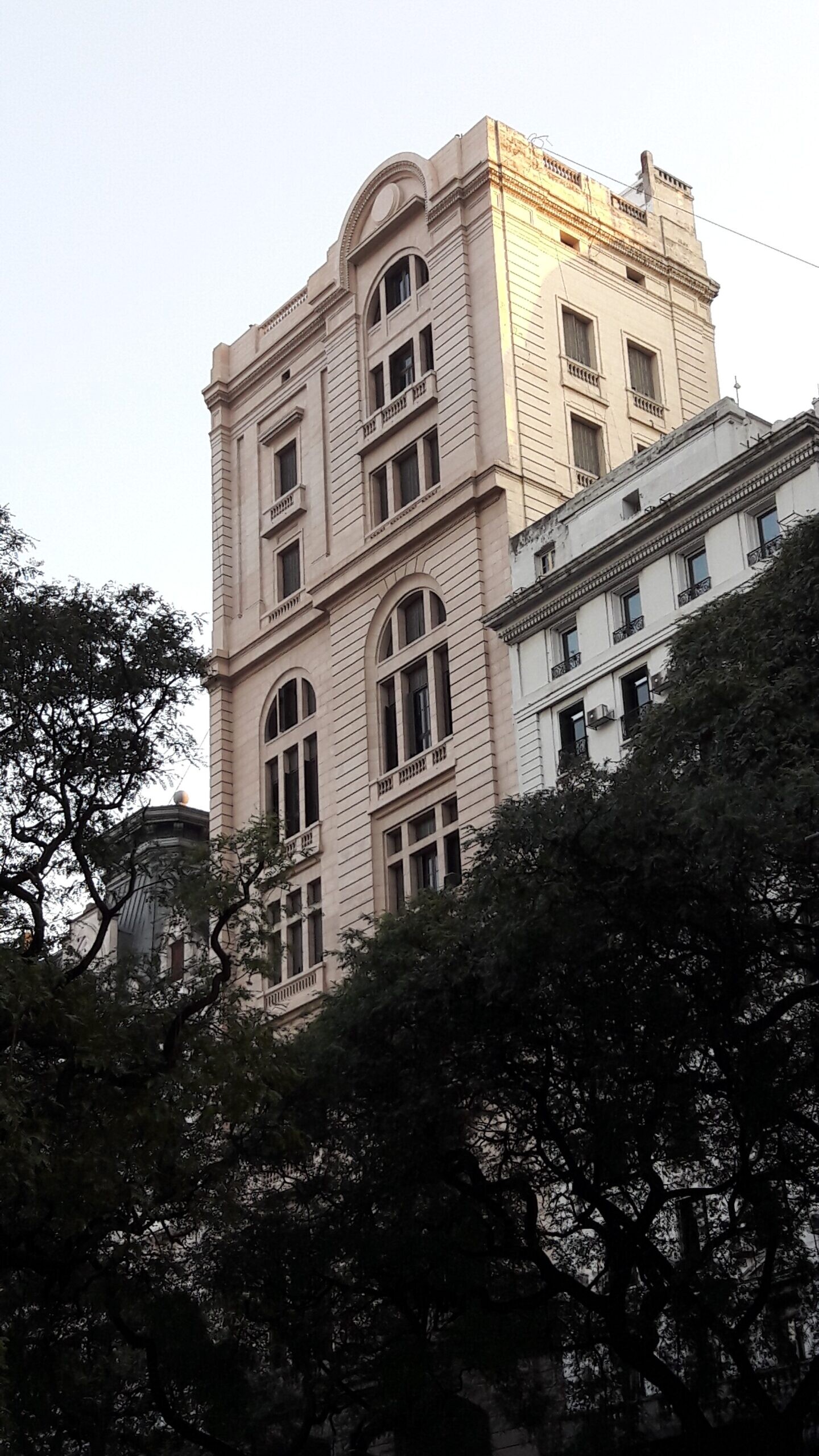
“Yad Vashem is here to not only put the pieces of the puzzle back together, but also to see how each of the stories and pictures interact within the larger framework of European and North African Jewry and the Holocaust,” she continued. “We never know what piece of the puzzle might interlink with another seemingly unrelated element in the history of the Shoah, deepening our greater understanding of the events of 80 years ago. These are the endless possibilities that exist when we begin to investigate new archives.”
The Argentinian National Archive is particularly interesting despite the Holocaust having taken place in Europe—thousands of miles away from Argentina, according to Rosenberg. She said there were ties connecting the country to the Holocaust both on the sides of the victims and the perpetrators.
“While during the war Argentina remained neutral with ties on both sides of the hostilities, after the war, many Nazis escaped Europe and sought refuge [there],” she explained. “Similarly, on the victims’ side, the Jewish community in Argentina—many of whom were ex-pats from Europe—had families directly affected by the events of the Holocaust. In addition, a sizeable group of Holocaust survivors immigrated to South America, and specifically Argentina, after the war seeking to rebuild their lives.”
‘Holocaust education is key to fight against intolerance’
In addition to the agreement about the archives, in a meeting with Argentine Education Minister Jaime Perczyk, Dayan signed the first-ever agreement between Yad Vashem and the Argentinian Ministry of Education pledging to strengthen efforts to promote education and commemoration of the Holocaust in Argentina.
“Holocaust education is key to our fight against intolerance and the baseless hatred of anti-Semitism,” said Dayan. “Argentina took an additional step in the right direction to bringing meaningful and historically accurate knowledge regarding this dark chapter of our not-so-distant past to the youth of today and generations to come.”
The agreement, which was also viewed by JNS, is specifically between Yad Vashem and Argentina’s Ministry of Education, Culture, Science and Technology.
It includes four initiatives: the coordination of professional and accredited educational activities for instructors both in formal and informal educational settings in Israel and Argentina; optimization of the use of Yad Vashem’s various resources, including the archives, museums, exhibitions and pedagogical framework for educational activities; facilitation of discussions between Argentine and Israeli teachers over pedagogical practices; and the planning and carrying out of preparatory annual and multi-annual follow-up programming.
“I am pleased that … relations between Israel and Argentina have reached a very high level,” said Israeli Ambassador to Argentina Galit Ronen.
The agreements were signed as part of a week-long visit made by Dayan and other leaders working to fight anti-Semitism, including U.S. Special Envoy to Monitor and Combat Antisemitism Deborah Lipstadt.
AMIA bombing: ‘Justice has not been served’
Dayan also met with Argentinian President Alberto Fernández and other high-ranking Argentinian officials, and participated in the Latin American Forum to Combat Antisemitism.
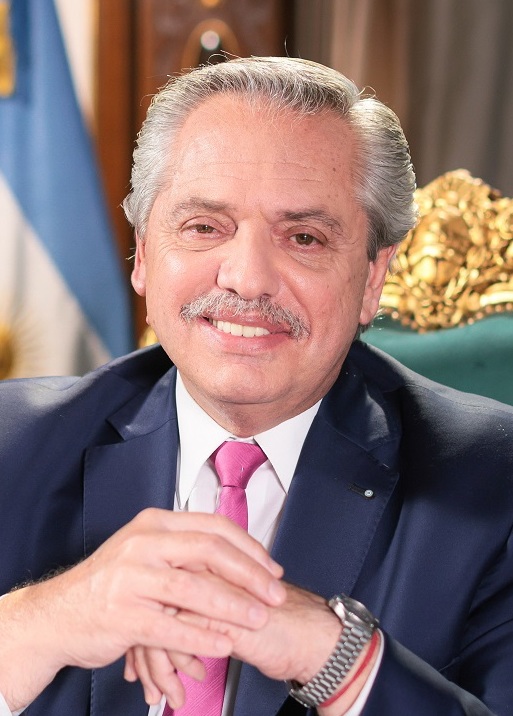
“In my discussion with the president, I expressed our deep appreciation for his support that has led to the signing of two important agreements,” said Dayan.
He noted that he and Fernández talked about the rise of hate speech and anti-Semitism around the world.
“I also took this opportunity to raise the issue of the terror attack on the headquarters of the AMIA [Argentine Jewish Mutual Association] in Buenos Aires 28 years ago, and the fact that despite the deaths of 85 victims, justice has not yet been served, with no one prosecuted to date,” said Dayan. “President Fernández expressed great frustration at this issue.”
Dayan was born in Argentina and immigrated to Israel as a young boy. He spent Shabbat with the Argentinian community before holding official meetings.


